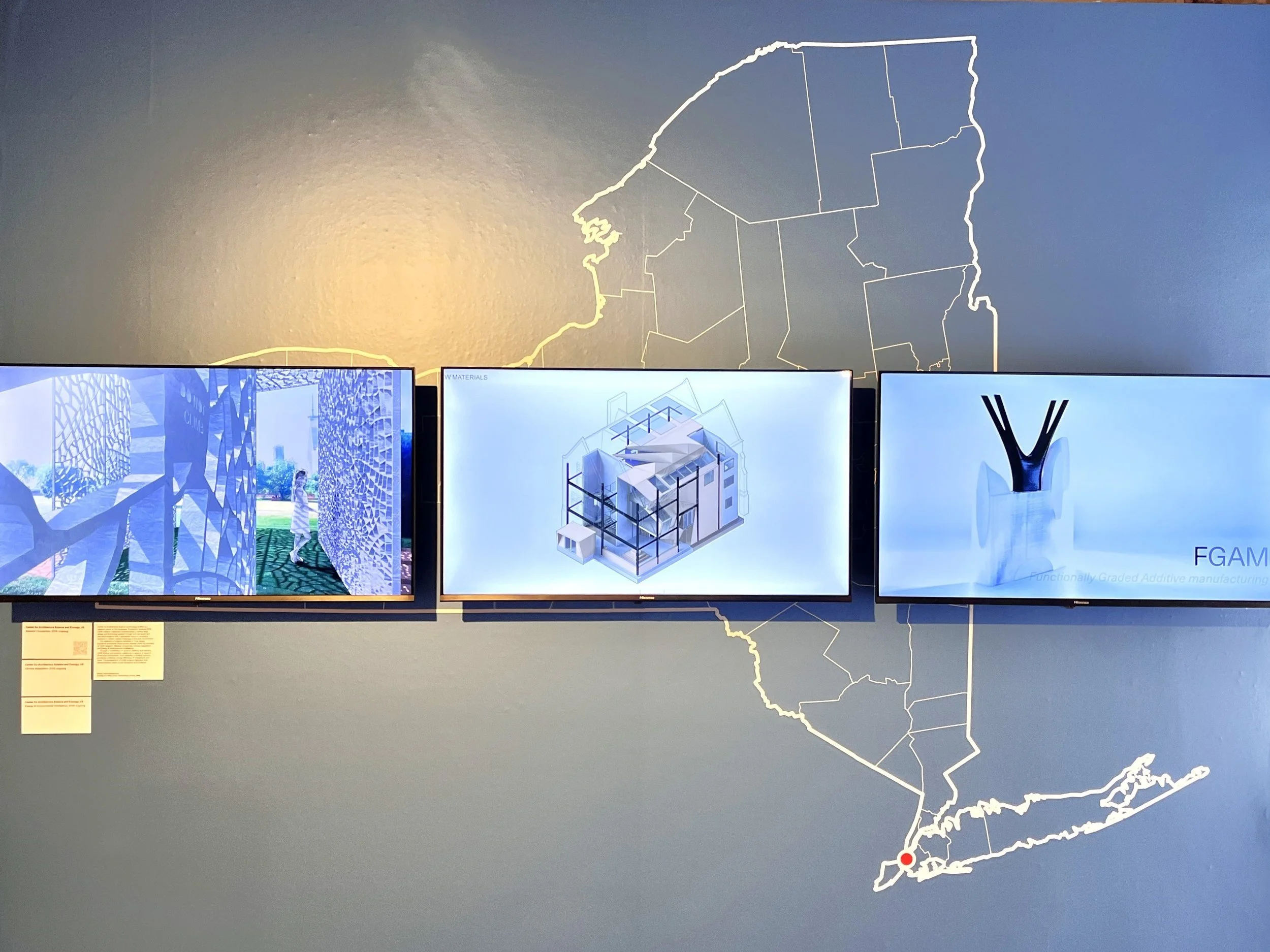CASE Research Exhibited at Time Space Existence
May 10th, 2025
CASE is proud to feature our research in Time Space Existence, a biennial exhibition hosted by ECC Italy.
Time Space Existence 2025: Repair, Regenerate, Reuse is a group exhibition during the Venice Biennale that invites international architects, designers, artists, academics, and researchers to engage with the pivotal themes of Repair, Regenerate, and Reuse. The show presents a dynamic array of works that span multiple disciplines, scales, and cultural contexts, offering innovative responses to some of the most urgent environmental, social, and cultural challenges of our time. The exhibit, hosted in Palazzo Mora will run from May 2025 through November 2025.
In direct correlation with this year’s exhibition theme, CASE produced a triad of videos* displaying a collection of projects for Time, Space, Existence which encompass three primary themes under the umbrella of CASE research: Material Circularities, Climate Adaptation, and Energy & Environmental Intelligence. Through a combination of research methods and practice, CASE faculty, students and partners collaborate to explore all aspects of the built environment, from materials to building systems, production methods, energy efficiency, AI integrations and more. The juxtaposition of CASE projects highlights their interconnected nature across disciplines and industries.
Material Circularities
CASE research explores the full potential of bio-materials and reclaimed waste to change the trajectory of end-of-life outcomes that result in excessive landfill mass and high pollution rates. The building industry in the U.S. has the largest carbon footprint of any sector with 40% of CO2 emissions coming from buildings. Exploring the use of bio-materials in design and construction CASE is developing eco-friendly, cost effective solutions to optimize energy efficiency, temperature control, building envelope optimization, acoustics, and more.
Climate Adaptation
Adaptation research examines the effects of climate change and the city’s ability to accommodate environmental transformations such as upgrades and retrofits to both historic and contemporary building systems, evolving human migratory patterns, and improving living standards. CASE is tackling the pressing need for adapted systems and infrastructure by designing and building flexible systems that consider the interplay between natural and built ecologies while incorporating the anticipation of continuous and rapid change.
Energy & Environmental Intelligence
Information integrates the delivery processes of building, and is increasingly embedded in the materials, systems and operations of the built environment. CASE research is creating a world where design and engineering virtual models continue their lives as embedded intelligent environmental systems, monitoring environmental conditions and working collaboratively with human occupants to deliver optimized and healthy experiences. CASE projects span scales to optimize energy use and energy-based decision making.
*Videos created and edited by Chalkley Calderwood
Featured partners and sponsors for our featured research:
OBMI, Fort Miller Group, DuraSip, Introba, Hempitecture
Media Contact:
Kathie Brill, Program Manager
Brillk@rpi.edu


